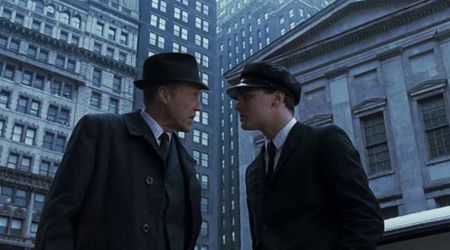Netflix's 'Òlòtūré' Review: A tragic, violent bloodbath painting the truth of Nigerian sex trafficking crisis

Spoilers for 'Òlòtūré'
At a first glance, the story of Òlòtūré is very dramatic. A free spirit daredevil young reporter thinks she really has something up her sleeve when she ventures into an undercover stint as a local prostitute to invade a high-end sex trafficking ring in Lagos, Nigeria. The titular character is described as someone with 'more bravery than sense' by her immediate superior at work and it stands true until the end of the story. Òlòtūré's fight to expose politicians and their dirty deeds sees her go from escaping odd clients through vents to offering a shoulder to cry on for fellow women in distress. From being an outsider dedicated about her profession to getting raped on a daring night out pretending to be an escort. The story is tragic and violent with an end that leaves one very, very worried about this protagonist. But that's not all the film departs with, there's this grave realization of the harrowing brutality and ruthlessness that goes on every day with women as desperate as those Òlòtūré meets in her journey. They all want to elevate their lives by crossing the border, but does the better life they dream of even exist?
Coming from EbonyLife, the makers of 'Chief Daddy' and 'The Wedding Party', 'Òlòtūré' is a striking shift from what the movie moguls are used to presenting their audiences with. Known for elaborate comedies, this dark, depraved and gritty tale of the Nigerian underworld associated with human trafficking is bound to leave audiences with their mouth hanging open, swirling in a shade of paleness too if they are faint-hearted. Directed by Kenneth Gyang and written by screenwriter Yinka Ogun, the film is a striking representation of passionate effort reflecting in the end product.
The traumatic story of the young and still alive infectiously hopeful Òlòtūré is probably what makes the viewers cry in pain for her devastating journey as she tries to have everybody along the way but not in time to salvage her own freedom. Sharon Oojaa plays the titular character and is a visceral charm to witness. When Òlòtūré is trying to be convincing, she's probably a little too dramatic and over the top. Almost as if giving herself away, but that is where Ooja shines in portraying an outsider trying to fit into a world people are drawn to only out of helplessness. There's being an escort and owning your profession and trade in pride, and then there are stories of girls tossed around the state-mandated foster system, gaslit into believing there's no other life out there for them. So they stick to the beating, and violation of their own bodies because the policies of the state are cut out to not favor them. It only makes sense, at least in this Nigerian thriller where influential politicians are a core clientele of all-powerful pimps.
The breakdown of Òlòtūré's spirit is yet another remarkable feat that both the filmmaker and Ooja herself achieves through the progression of the plot. While completely stripped off of any hope in her being after she gets drugged and raped by a politician at one of his 'parties', Òlòtūré refuses to step down from her investigation, despite the earnest pleas of her senior who is clearly in love with her. Even after being so wronged, she voluntarily participates in being smuggled across to Italy with the other naive prostitutes hoping for a dream. Òlòtūré is smart enough to know what comes ahead is but thorns and pain, but dedicated enough to still follow through. She watches her closest ally at the brothel get murdered and aids the escape of said ally's little sister before getting caught by the mafia smuggling them.
In all of this, however, barring a tear-drenched shower scene and the inability to face her mother, Òlòtūré withstands everything, including standing up to her boss for finishing what she started.
The film is produced by Mo Abudu, whose titles have always bagged the highest commercial success amidst the Nigerian film industry. But even as she digresses from her signature formula of spice and drama, her core cast involving the likes of Lala Akindoju, Blossom Chukwujekwu, Omowunmi Dada, Segun Arinze, Omoni Oboli, and many more deliver a promising story. Gripping and emotional in every way, Òlòtūré's story stays open-ended, almost as if a segue for a sequel. But if one knows better, they would see the lack of a silver lining in any of this, as Oloture crosses the border, unconscious and battered, into a territory where her body is contractually not hers anymore. Through her tragedy, Òlòtūré even highlights the intensity of these human trafficking rings where they strip women off the rights of their own body. An induction process involves sacrificing a chicken, infusing the bird's blood into each of the trafficked women's bloodstream but slicing open their own skin, and burning their pubic hair in a pyre, right before they are forced inside a coffin as a reminder of what's to happen to them should they rebel. It is disturbing and meant to make one uncomfortable - the entire 90-minutes of the film sprinkled with several other reminders of how these women are nothing more than objects to be battered, or worse, directly killed just to send the message that they are nothing, neither will ever be. And maybe that is the poignant ending the film was meant to leave us with - only further enunciating the gravity of laws failing those in dire need.
'Òlòtūré' is now available for streaming only on Netflix.










